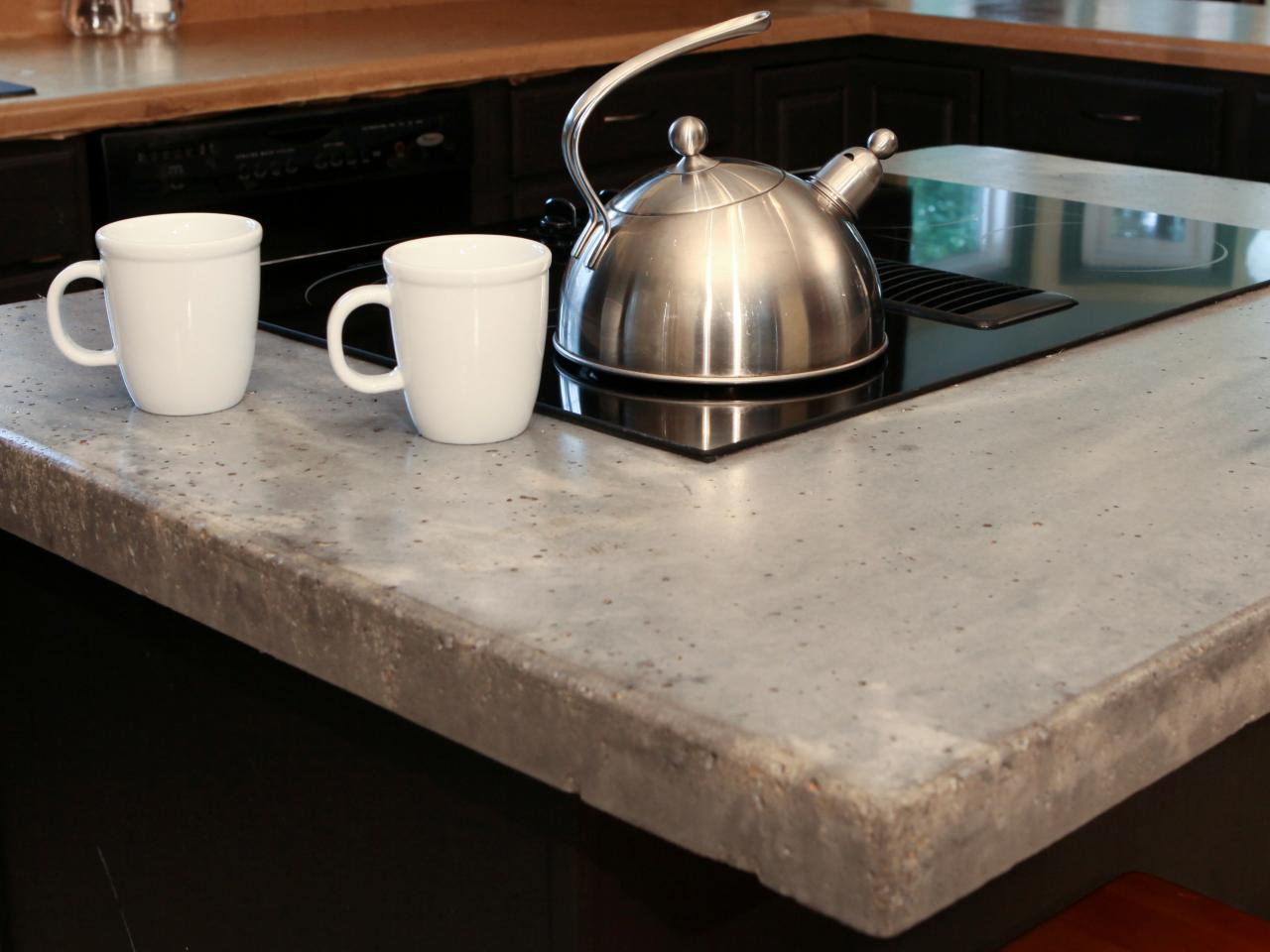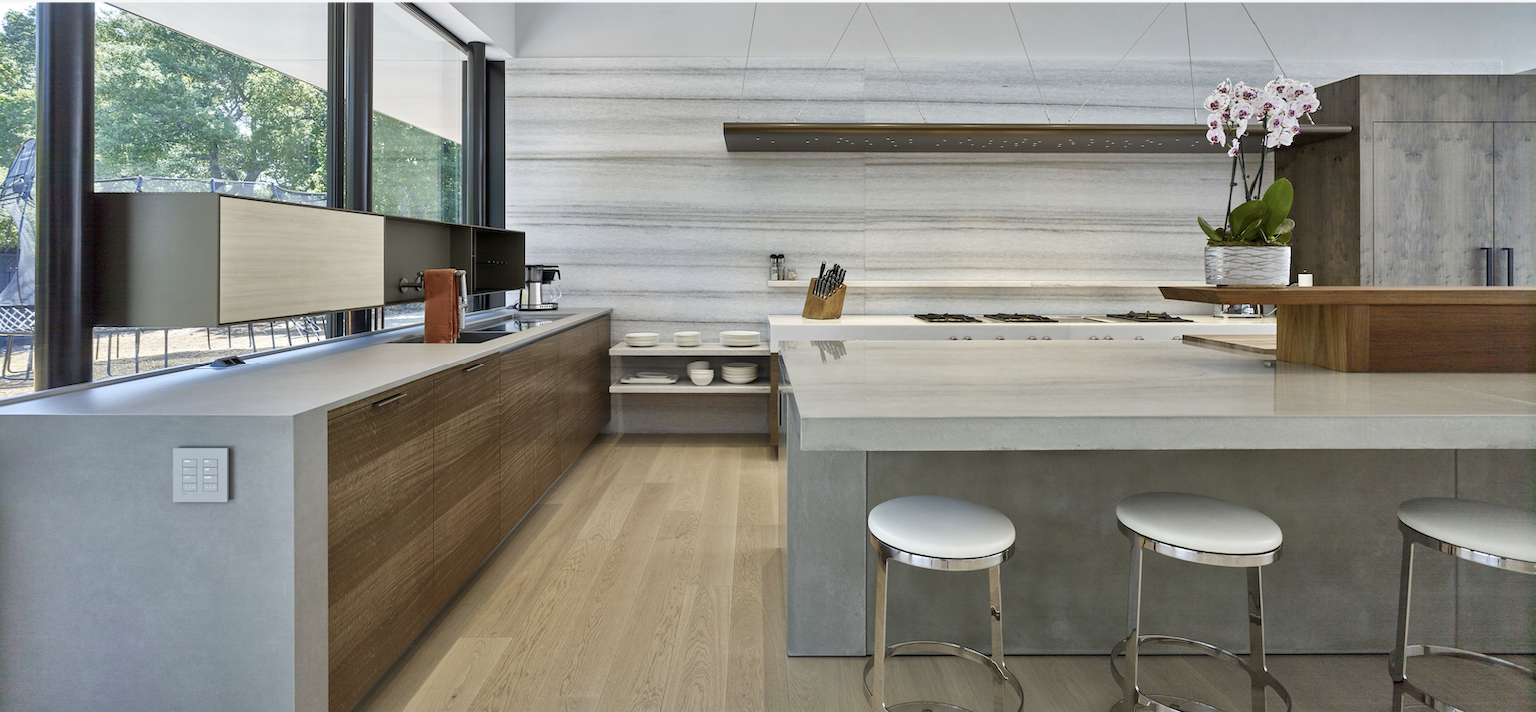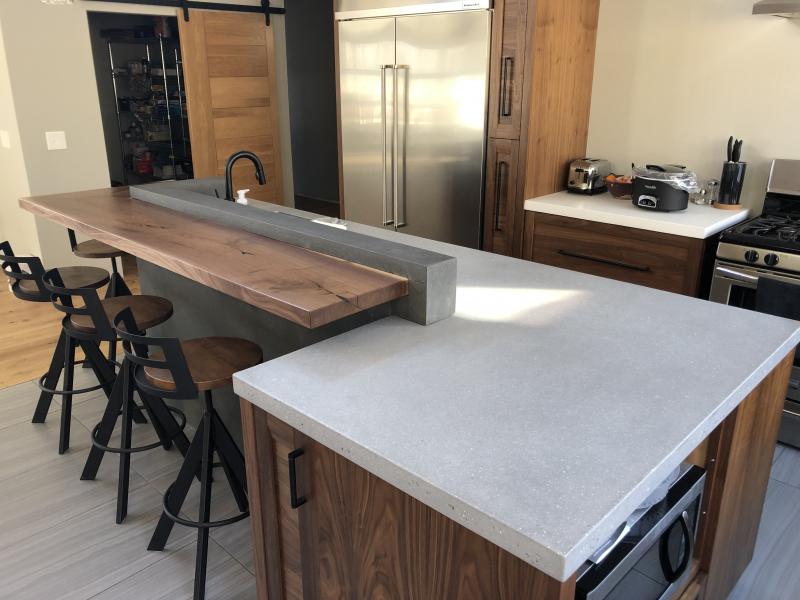Unveiling the Charm and Durability of Concrete Countertops for Kitchens
Concrete countertops have surged in popularity in recent years, offering a unique blend of modern aesthetics, durability, and versatility for kitchen spaces. Far from the drab, utilitarian slabs of the past, contemporary concrete countertops come in a variety of colors, textures, and finishes, allowing homeowners to customize their kitchen surfaces to suit their personal style and preferences. From industrial-chic loft kitchens to sleek, minimalist interiors, concrete countertops add a touch of sophistication and character to any culinary space. Let’s explore the different benefits and considerations of opting for concrete countertops in the kitchen.
Aesthetic Appeal and Customization
One of the most enticing aspects of concrete countertops is their aesthetic versatility and customizability. Unlike natural stone countertops, which are limited in color and pattern options, concrete countertops offer endless possibilities for customization. Pigments, aggregates, and decorative additives can be incorporated into the concrete mix to achieve a wide range of hues, textures, and visual effects, from earthy neutrals to vibrant hues.
Moreover, concrete countertops can be tailored to suit various design styles, whether you prefer a sleek and polished finish or a more rugged, industrial look. Techniques such as acid staining, integral coloring, and decorative embedding allow for the creation of unique and visually stunning surfaces that become the focal point of the kitchen. Additionally, concrete countertops can be cast in virtually any shape or size, making them ideal for custom layouts and unconventional design configurations.

Durability and Strength
Despite its perception as a delicate material, properly engineered concrete countertops are remarkably durable and resilient, capable of withstanding the demands of daily kitchen use. Modern concrete countertops are reinforced with materials such as fiberglass, metal, or polymer fibers to enhance their strength and durability, minimizing the risk of cracking or chipping over time.
When properly sealed and maintained, concrete countertops offer excellent resistance to heat, scratches, stains, and moisture, making them well-suited for the rigors of kitchen environments. Unlike natural stone countertops, which can be susceptible to etching or discoloration from acidic substances, concrete countertops can be sealed with a high-quality sealer to protect against stains and maintain their integrity for years to come.

Sustainable and Eco-Friendly
For environmentally conscious homeowners, concrete countertops offer a sustainable and eco-friendly alternative to traditional countertop materials. Concrete is composed of natural materials such as sand, gravel, and cement, making it an environmentally friendly choice for kitchen surfaces. Additionally, concrete countertops can be manufactured locally, reducing the carbon footprint associated with transportation.
Moreover, concrete countertops can be crafted with recycled materials or reclaimed aggregates, further minimizing their environmental impact. By choosing concrete countertops, homeowners can contribute to sustainability efforts while enjoying the beauty and functionality of their kitchen surfaces.
Maintenance and Care
While concrete countertops offer many advantages, they do require proper maintenance and care to ensure their longevity and performance. Regular sealing is essential to protect the porous surface of concrete countertops from stains, moisture penetration, and bacterial growth. Depending on the type of sealer used and the level of wear and tear, resealing may be required every one to three years.
In addition to sealing, routine cleaning with a pH-balanced, non-abrasive cleanser and a soft cloth or sponge is recommended to remove dirt, grime, and food residue from the surface of concrete countertops. Avoid using harsh chemicals, abrasive cleaners, or scouring pads, as these can damage the sealer and dull the finish of the countertops. Wiping up spills promptly and using cutting boards or trivets to protect the surface from heat and scratches can also help prolong the life of concrete countertops.

Common Mistakes to Avoid:
Inadequate Sealing: Failing to properly seal concrete countertops leaves them vulnerable to stains, moisture penetration, and bacterial growth. Ensure thorough sealing and regular maintenance to protect the surface and maintain its integrity.
Ignoring Structural Reinforcement: Neglecting to reinforce concrete countertops with materials such as fiberglass or metal fibers can result in cracking or structural issues over time. Proper reinforcement is essential to ensure durability and longevity.
Skipping Professional Installation: Improperly installed concrete countertops can lead to uneven surfaces, cracking, or other structural problems. Hire experienced professionals to handle the installation process and ensure a flawless result.
Using Harsh Cleaning Products: Harsh chemicals or abrasive cleaners can damage the sealer and dull the finish of concrete countertops. Stick to mild, pH-balanced cleansers and avoid abrasive tools to preserve the beauty and integrity of the surface.
Neglecting Regular Maintenance: Regular sealing and cleaning are essential to keep concrete countertops looking their best and prevent damage from spills, stains, and everyday wear and tear. Establish a maintenance routine and adhere to it to prolong the life of your countertops.

Are concrete countertops prone to cracking?
Properly engineered and reinforced concrete countertops are highly resistant to cracking. However, factors such as inadequate reinforcement, structural settling, or improper installation can contribute to cracking over time.
Can concrete countertops be repaired if they become damaged?
Minor damage such as scratches or chips can often be repaired with specialized patching materials and techniques. For more extensive damage, consulting a professional countertop installer or contractor may be necessary to assess and address the issue.
Do concrete countertops require special support or cabinetry?
Concrete countertops are heavier than some other countertop materials and may require additional support from cabinetry or structural reinforcement beneath the countertop. Consult with a professional installer to ensure proper support and installation.
Can concrete countertops be stained or colored to match a specific design scheme?
Yes, concrete countertops can be stained or colored with pigments, dyes, or integral coloring agents to achieve a wide range of hues and effects. This allows for customization to match any design style or color palette.
Are concrete countertops suitable for outdoor kitchens or areas with high humidity?
While concrete countertops can be used in outdoor kitchens, it’s essential to choose a sealer specifically formulated for outdoor use and ensure proper drainage to prevent water pooling. In high-humidity environments, regular sealing and maintenance are crucial to prevent moisture-related issues.
Amazing and stylish kitchens with concrete countertops

The Problem With Concrete Countertops That No One Talks About

All You Need to Know About Concrete Countertops – Bob Vila

A Guide to Concrete Kitchen Countertops: Remodeling 101

DIY Concrete Countertops Part 2 of The Total DIY Kitchen Series

Related articles:
- Concrete Countertop Overlay
- Black Concrete Countertops
- Marble Look Concrete Countertops
- Light Grey Concrete Countertops
- Concrete Countertop Design Ideas
- Light Colored Concrete Countertops
- Epoxy On Concrete Countertop
- Concrete Countertops Designs
- Concrete Countertops That Look Like Wood
- White Concrete Countertops